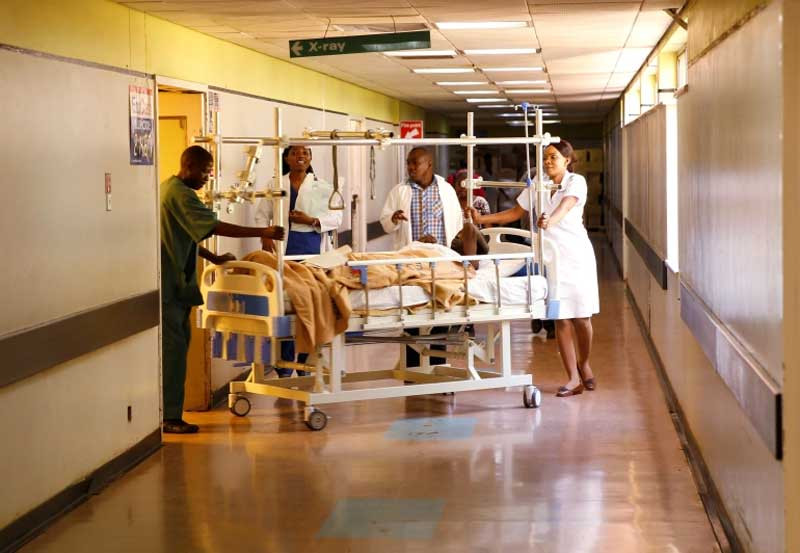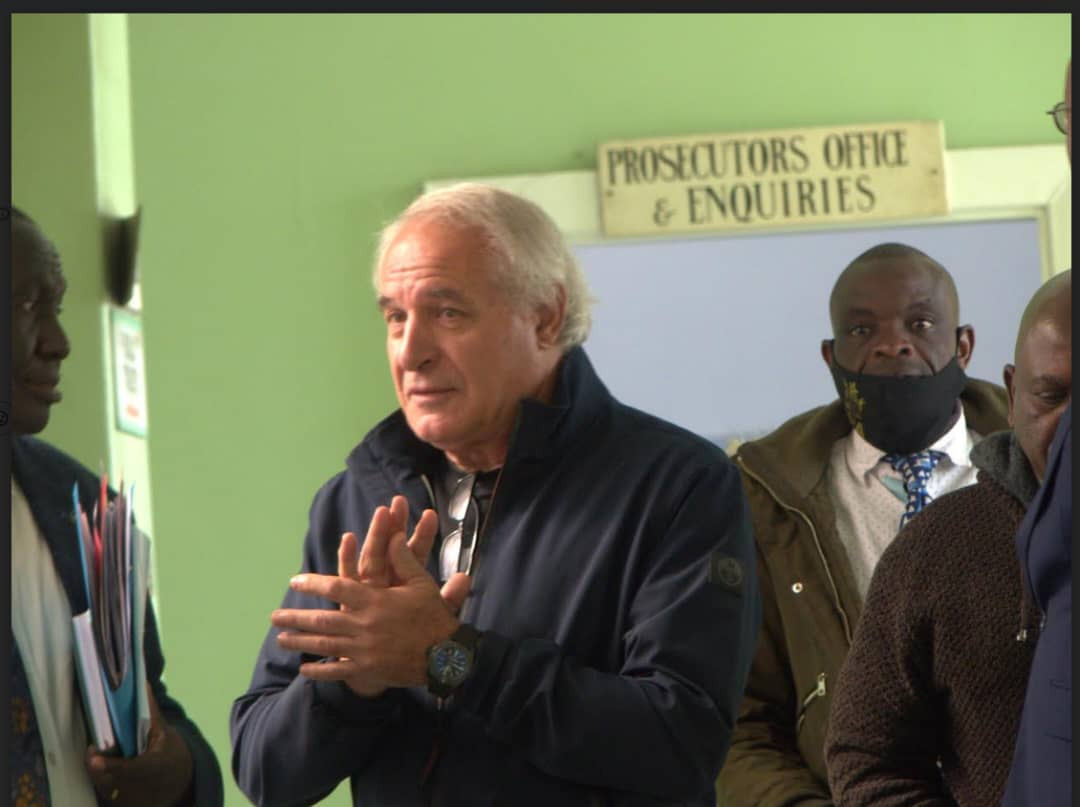
Education, health and clean water supply were loudly and vociferously acclaimed and supported by every Zimbabwean in the 1980s and 1990s.
And amazingly all three were wonderfully fulfilled.
Zimbabwe was the admiration of Africa and the world for these eminent achievements.
These three developments were and continue to be the foundation of all development, in particular economic development.
Without them economic growth for all is difficult if not impossible.
During the second two decade of independence, 2000 – 2020, progress in these three critical areas slowed down.
Education results at Grade 7 and O’Levels deteriorated.
Health facilities were hampered by the lack of medicines for poorer and rural inhabitants.
- Mavhunga puts DeMbare into Chibuku quarterfinals
- Bulls to charge into Zimbabwe gold stocks
- Ndiraya concerned as goals dry up
- Letters: How solar power is transforming African farms
Keep Reading
There was rampant unemployment and deterioration of the economy.
The formal economy shrank, with only tobacco and minerals dominating exports.
The informal economy grew from a minute percentage of employment to comprise more than five million employed today.
Most of them are paid poor salaries; sizeable numbers are paid through one meal a day.
The result is that Zimbabwe grew from a self-sufficient economy to one, which has to import most of its food and of other essential consumables.
The diaspora grew, estimated at more than four million people, more than 40% of the population.
Most are looking for employment or ways of earning a living.
Zimbabwe is now looking ahead to its 50 to 60 years of independence.
Can Zimbabwe achieve work for all in these two decades?
Is work for all a possibility? The potential is there.
Can Zimbabwe achieve some of this potential in 20 years? What is necessary to make this potential a reality?
What made the first two decades a success story is the unity of the whole society behind the three objectives: education, health and clean water supply for all.
Poor people supported these. Urban and rural people supported these aims. Rich people supported these aims.
Africans supported these aims. Europeans supported these aims. Communities supported these aims.
Churches supported these aims. Farmers and industrialists supported these aims. Government supported these aims.
There was universal support for these aims.
But clearly each family and each community has a different identification of what it wants.
Each has specific and detailed aims: these depend on their aims in life as well as the work and employment opportunities open to them.
They can achieve them well, but family, community, state, and professional support are all essential.
Few families and few communities can do this on their own.
Wealthier families and communities may have better opportunities than poorer families and communities.
In targeting work and employment for all, it is also necessary to examine the requirements of the different communities.
De-centralisation of decision-making is therefore of critical importance. Different communities naturally have different understanding of their societies and its needs.
Cultures and values differ according to language and history.
Agricultural societies have been able to adapt to new crops, such as tobacco and horticulture, whereas urban inhabitants may not be able to adapt to agricultural needs and conditions.
The amazing success of 90 000 small-scale farmers who replaced a few thousand large scale farmers is a case in point: they received training and loans, and were able to utilize both well.
Given the many differences on the ground, it is essential to adjust the planning, implementation and supervision of development plans according to the local community needs, whether this is for education, health or work creation.
The present over-centralised system of planning, implementation and supervision makes it difficult to cater for such individual requirements.
One of the first requirements is therefore to allow a good balance between centralised planning such as by the government and ministry concerned, with local initiatives and control.
The fact that all teachers and nurses are recruited centrally often means that local needs are not well catered for.
Formal manufacturing companies usually operate in cities, staffed by urban workers, whereas informal manufacturers may be better able to satisfy local needs.
There is need to combine the two disparate communities, such that national and international standards can combine with local needs and requirements.
It may mean that local productivity can be linked to outside requirements, in terms of export requirement within the region of Africa as compared to say international centres such as London and New York.
Such an adjustment can be salutary: some local requirements can very satisfactorily addressed by local companies, whereas some adjustments need to be made taking into consideration the targeted export markets.
This implies that within the same industry there is need to address both internal and external markets.
At the same time, it may be that some lower cost manufacture by machines may be more durable and lower cost than hand made more artistic manufacture: Zimbabwe has not been able to satisfy these variable market requirements.
To return to the first and most important question: is Work for All feasible? My answer is yes, an emphatic yes.
But it requires the utilisation of both small and large scale farming and manufacturing, aimed at the different market conditions.
Clothes which are fashionable in New York may not be admired locally.
Prices which are suitable for New York are not suitable for most local people.
Low, medium and high technologies and management systems are required for Zimbabwe’s development, and it is possible to look at the existing technologies and management systems both methodically and critically.
Is it possible for peasant agriculture to be improved, by knowledge, training and management levels?
Is it possible for commercial agriculture to be available to small scale farmers, and exactly how will this be done?
Finally what is the role of government in all these forms of development?
At present government sees its main role as collecting taxes, buying cars and employing a larger and larger civil service.
The civil service today is twelve times larger than it was at Independence, but the economy is not twelve times larger.
The economy has been stagnant for more than two decades. Now is the time for the economy to double and treble in size.
It can only do this if all levels of development are supported, not only the tiny urban levels.
Going back to the early success of Independence, much of it was due to the training of new officials in all areas that were needed, through formal and distance education and training.
The rural areas, such as the rural secondary schools and rural clinics and hospitals, were given building grants and administration grants, and these modest grants enabled local communities to complement and supplement the state funds through local work such as brick moulding and utilization of local builders, local administrative skills, and nationally published textbooks rather than those published in the United States which are four to five times more expensive and are unaffordable to parents today.
State subsidies and state supervision are critically important. Government’s role is pivotal, but it should not exclude the roles of rural, poorer, community, private and church sectors: all are important and should be working together.
Through such unity of purpose Work for All can be achieved in the next 20 years.
- Chung was a secondary school teacher in the township; lecturer in the polytechnics and universities; teacher trainer in the liberation struggle; Zimbabwean civil servant and UN civil servant and minister of Primary and Secondary Education.
- *These weekly articles are coordinated by Lovemore Kadenge, an independent consultant , past president of the Zimbabwe Economics Society and past president of the Chartered Governance & Accountancy Institute in Zimbabwe.
- Email- kadenge.zes@gmail com and Mobile No. +263 772 382 852











